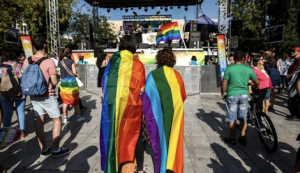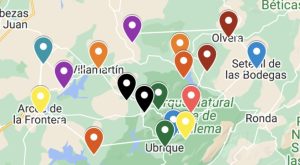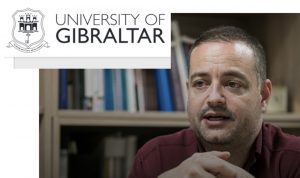Contextualising the All Inc! project inside the EU scope
Our blog welcomes this contribution by Igor Emmanuel Carnaúba, who joined us for All Inc!’s final conference — muito obrigado, Igor!
Similarly to the growth of social pro-LGBTQ+ movements, the process of European integration dates back to the post-World War II era. A group of pioneers, among them Louise Wess and Joseph Bech, gathered with the same objective: to make Europe a peaceful, prosperous and united continent. This group was basically formed by Holocaust survivors, politicians and resistance fighters. In other words, the first step towards integration in Europe already started with clear-minded people eighty years ago.
After non-discriminatory clauses were incorporated into the scope of EU institutions with the Treaty of Amsterdam in 1999, EU financial support started to embrace projects regarding sexual preference, diversity, inclusion and acceptance. One example is the Rights, Equality and Citizenship Programme (REC); this initiative funds some institutions, such as the European Region of the International Lesbian, Gay, Bisexual, Trans and Intersex Association (ILGA). Another example is Erasmus+: created in 2014, the initiative increasingly supports projects related to social inclusion, technology, ecology and youth participation in democratic processes.
The Erasmus+ programme is in line with what was agreed in both Amsterdam and Bologna in the late 1990’s and is managed by the European Commission, with support from National Agencies in each EU Member State. The program had a budget of over €14 billion for the 2014-2020 period and is structured around key actions, such as mobility for individuals, partnerships between organisations, and support for policy reform. The available funding may seem a lot, but it merely represents about 1.5% of the total amount of money available for funds in the same period. The figure is also less than the 8% available for the Horizon programme, which can share the same objectives with Erasmus+ due to its interest in ideas related to the social sciences. Combined, these programmes barely represent 9.5% of the total available funds.
These figures show that the budget for social programmes is proportionally not the most substantial of the European Union. The decision over what percentage of available money to allocate to different categories is based not only on policy priorities, but also on the success of projects in a given area. Another question related to the investment is where it should go; it depends on how populated, big and developed a country is, in addition to whether or not a country follows the rule of law —a founding principle of the EU that upholds that the values of the organisation are common to all member states—. For example, in recent years, the EU has repeatedly accused Hungary of violating democratic principles, after the national parliament passed a law in 2021 barring homosexuality and transgender content for minors, which includes a ban on educational materials in schools and media content accessible to under-18s. In response to this anti LGBTQ+ law, the EU cut funding to Hungary, which could have significant consequences for the country’s economy and social programs.
Even though the decrease of investment surely impacts Hungary, some schools and NGOs are still able to receive funds in order to continue their social activities. Hungary’s access to EU money can also come from projects submitted by institutions from other member states, like All Inc!. Aiming to build LGBTQ+ friendly schools, the project works with eight different countries, and Hungary is included in the partnership, which reached more than 3,000 people including pupils, teachers and parents. This number represents double what the European Union required, even if there remains an “it’s never enough, but always a start” feeling that more can be done. The more effective All Inc! is, the more investment can be devoted to sexual preference awareness in schools, thanks to the way the EU decides to allocate funds.
In conclusion, All Inc!’s goals match those of the Treaty of Bologna and the Treaty of Amsterdam, which, along with the success of previous projects such as “Homo’poly”, justifies all the grants. All Inc! challenges the differences that member states present in terms of public opinion about minority politics, while helping to still include institutions in Hungary, despite the cuts in funding. For the next call of applications, partnerships should be extended, including with more non-EU institutions, which might strengthen the project in terms of comparative research with other countries such as Brazil in terms of how schools are dealing with sexual minorities. After all, being open to more ideas to include transgender people in the scope of activities, as well as ex-students and parents, is a nice way to amplify the project’s impact in the coming years.







